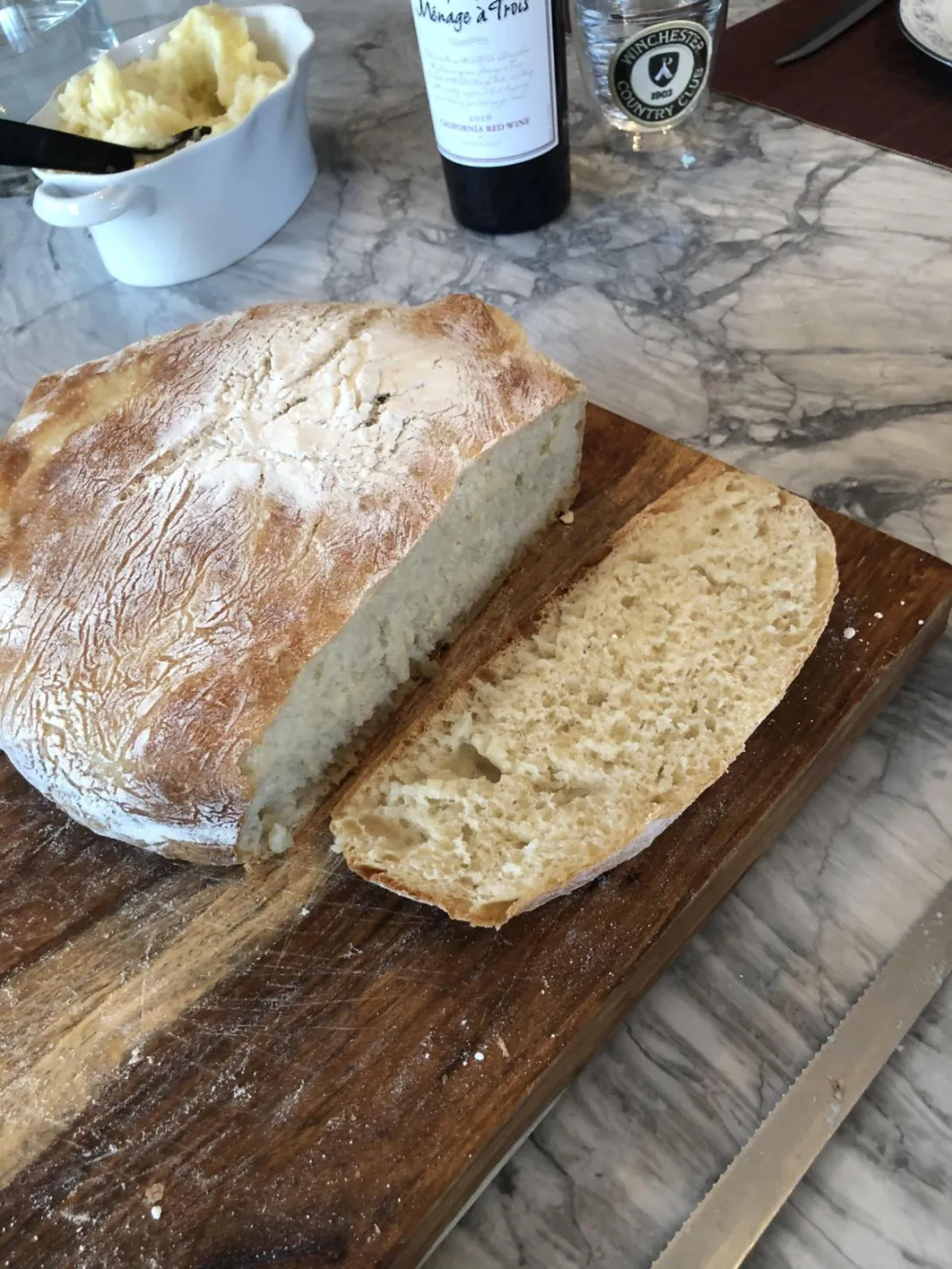
Hi all,
My name is Harbourman, you can call me Harbs if you like. Found this site last week and it inspired me to bake my first loaf. Had to find flour first, which wasn’t easy in this climate. I went to my local bakery and they were kind enough to sell me so bread flour and we put it in a zip lock bag.
I found a video on YouTube and went after it. Artisan loaf. Went really well and the family went wild, with the kids crushing the whole loaf at dinner! Making another one this morning.
QUESTION: the “crumb” (learned that from you all :) was fairly dense. Still delish, but denser than I thought it would be. Is that normal?
Maybe denser then you used to with bread from the supermarket.
But for a first loaf this looks great.
I think your a natural at this baking stuff.
Am I right if I assume you used commercial yeast?
Thanks! You nailed it. I used commercial yeast. A little yellow packet called fleischmanns. How did you know?
This result with sourdough in such short time seems almost impossible.
what you mean by dense. Maybe you can elaborate and also tell us if the bread was cut and devoured while still hot. (What do the Borg say? Resistance...)
From here it looks pretty darn good! Even crust colour all around, lots of gas cells, a decent bread knife, yup wine, a spreadable and a thankful family. Life is good. :)
Mini
Dense: since it’s my first time, I guess it’s all in the eye of the beholder. So I’ll try to explain what I saw. I used a Dutch oven, and the bread felt “soft” even after taking it out when pushing down on the crust. Agreed the crumb actually looked good, but maybe could have left it in the oven for a bit longer? Don’t want to sound like a dolt or ungrateful, b/c it was really good.
making another one as we speak- so I’ll have another reference point :)
this one however is not 100% bread flour b/c I ran out. It’s 1/2 bread flour 1/2 ap flour. Any thoughts on using AP flour? From here on out it’s all I have so the next one will be ALL ap!
especially for a yeasted dough. Sourdoughs tend to need that extra gluten as the process is longer and bacteria chews at the gluten as well. You can easily knock the bread flour down lower. You also might want to conserve yeast. It slows the whole process down but giving it the time can save you yeast. At least right now when it seems hard to get. If you've plenty of yeast try it another time.
AP works just fine for making bread. You will have to drop back the water some, 75% could be too high. The more protein in a flour, usually the more water it needs to hydrate. Hold back about 50g and splash in as needed when mixing to get those very dry spots of flour.
just realized I gave you a new vocabulary word, hydration. That figure is obtained by dividing the total water by the total flour and then multiplying by 100 to get the %. :)
You just introduced math to an English Major!?
ok. Good thing the recipe I used had strict gram measurements. I used 750 grams of flour, with 600 grams of water. B/c of the “dense” situation earlier referenced, I used 575 ounces of water. So based on your formula, it’s at 77% hydration...I think, lol.
so... we’ll have to see what the current loaf comes out like. I’m due to fold it in about 10 min and set for proofing.
stay tuned, and thanks for the information!!
if you got any rolled oats around, you can correct fast. Just toss a few spoonfuls across the dough and fold them in. They are great little soaker uppers.
What does less water do? How do I get the nice big bubble holes in the crumb?
sorry if these are lazy, sophomoric questions. I will the proper research to figure it out too. Next up for research; poolIsh?!?
Holes are over rated. But you can go after them if you wish, just make sure your dough is well developed before bulking and shaping. Stay away from dangerous killer rabbit caves in your quest and you'll get there. :)
It looks great! Welcome to the forum.